Obituary: Prince
- Published
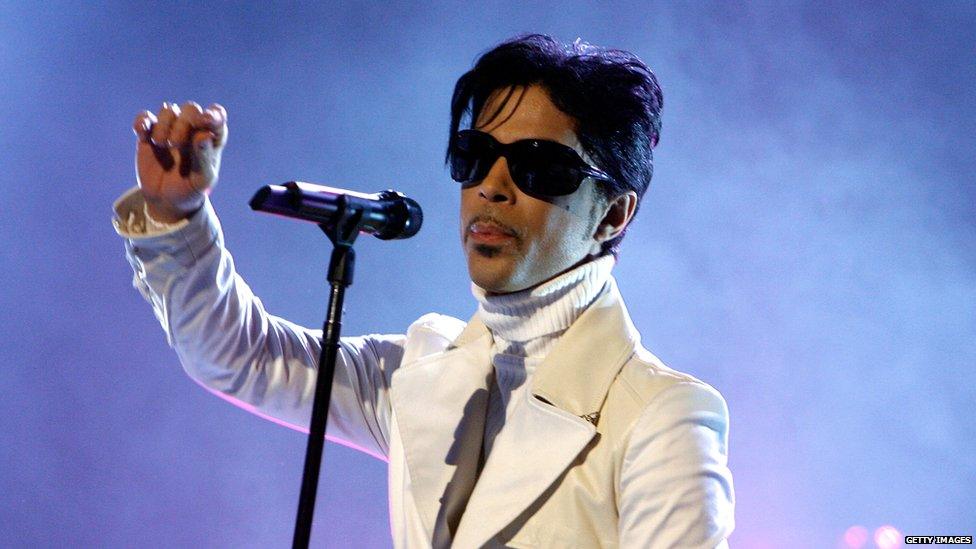
Prince - who's died at his home in Minnesota near Minneapolis at the age of 57 - wrote hundreds of songs for himself and other artists.
He was one of the most prolific artists in music, releasing 39 studio albums, including four in the last 18 months.
Last month, publisher Spiegel & Grau announced that it acquired Prince's memoir, set for release in fall of 2017. "We're starting from the beginning from my first memory and hopefully we can go all the way up to the Super Bowl," Prince said.
It now seems unlikely we will ever get to read those words, from one of rock's most elusive and enigmatic performers.
Born Prince Rogers Nelson June 7, 1958, in Minneapolis, Minnesota, he was a child prodigy - self-taught on dozens of instruments, from the piano to the guitar, bass and drums.
He released his debut album, For You, in 1978, followed by Prince (1979), Dirty Mind (1980) and Controversy (1981).
Each of them was laced with his trademark deep synth funk, a sound he constantly refined and stripped back until his breakthrough came in 1982 with the double album 1999.
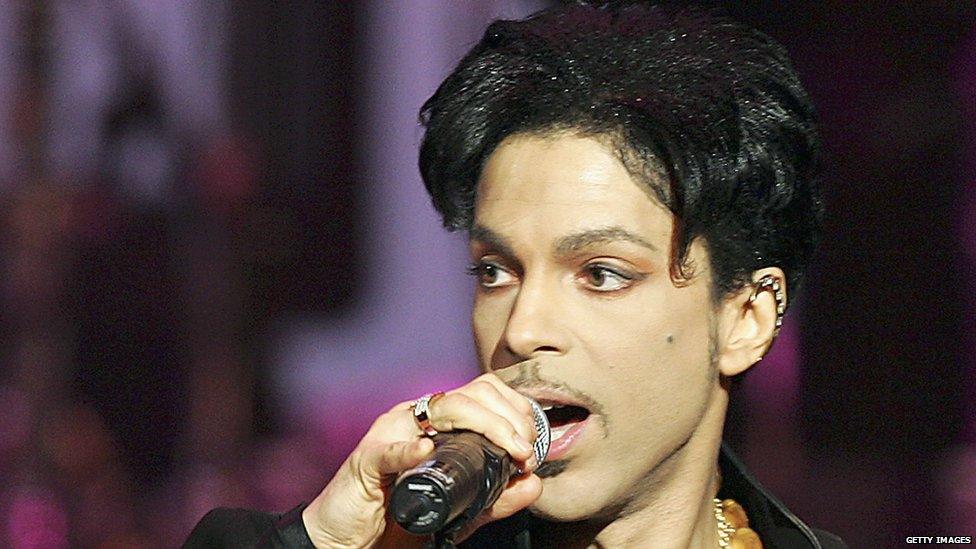
From the apocalyptic title track to the dance floor hit, Little Red Corvette (which he claimed to have written in his sleep), the album helped launch him into the mainstream.
Spurred on by the success of his album, he persuaded Warner Bros to fund a film - Purple Rain, a loosely autobiographical story of a struggling musician from a broken home.
Although the acting is corny and the plot contrived, critics raved over the incendiary concert footage and the film spawned some of his most memorable songs.
Five singles were released from the soundtrack - two of which, When Doves Cry and Let's Go Crazy, went to number one on the Billboard chart.
The title track, a sprawling, impassioned ballad with a guitar solo as memorable as it's unimpeachable chorus reached number two, but remained his signature song, and one of the most recognisable rock anthems in history.
Prince went on to win an Oscar for original score in 1985.
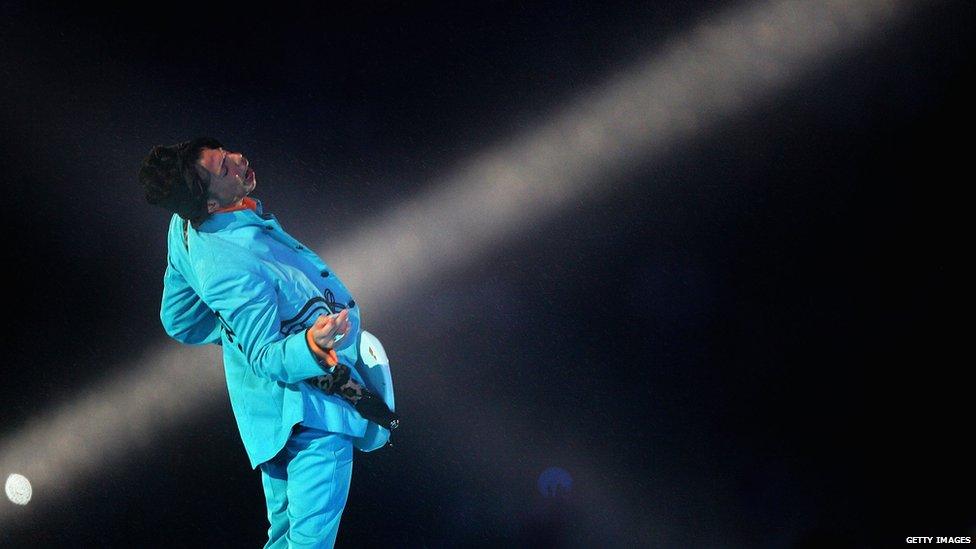
He faltered with his next album. The over-reaching, psychedelic pop of Around the World In A Day alienated fans who wanted another rock record, but it spawned a classic single in the shape of Raspberry Beret.
The musician continued to confound expectations with the sparse funk of Parade, featuring the hit song Kiss, and the social commentary of 1987's Sign O The Times.
And he continued to make forays into the movies. He starred as a gigolo in 1986's Under the Cherry Moon, wooing Kristen Scott Thomas in the South of France, but the film floundered; while 1990's Graffiti Bridge - a sequel to Purple Rain - was nominated for five Golden Raspberries.
But the hits kept coming. Alphabet Street, U Got The Look, Diamonds and Pearls, Get Off, My Name Is Prince, Cream... He looked unstoppable.

Prince performs during the halftime show of the NFL's Super Bowl XLI football game between the Chicago Bears and the Indianapolis Colts in Miami, Florida, February 4, 2007
Then, in 1993, he announced he was retiring and changed his name to an unpronounceable symbol - designed to depict both male and female genders. He soon became known (somewhat mockingly) The Artist Formerly Known As Prince.
The move was down to a protest against his label. Warner Bros. Prince wanted to own the master tapes to his own songs, and to be allowed to release more material, more often.
Relations deteriorated to the point where he appeared with the word "Slave" written on his face - while the success of The Most Beautiful Girl In The World (his only UK number one, released independently) only made matters worse.
He released five more records, lacklustre at best, as his contract bid him, before leaving the label and signing with Arista Records.
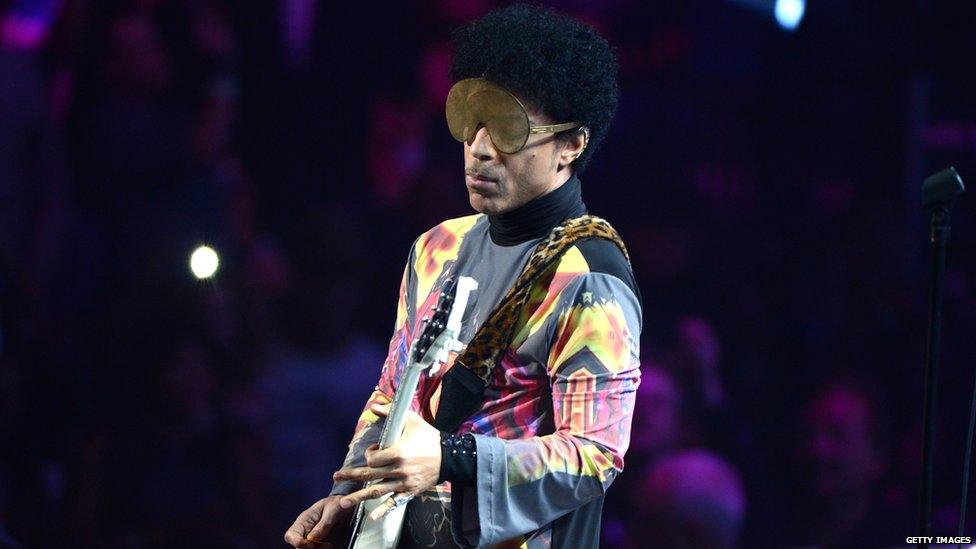
By the early 2000's, the symbol was no longer relevant and he reverted back to his original name. But his sales never recovered, and the quality of his albums never reached the peak of his 1980s peak.
Famously flamboyant, he would stun dedicated audiences the world over with impromptu concerts, unlikely solo cover versions, and extravagant outfits.
It was often said that his incredible vocal range masked the fact that he was one of the greatest guitarists of his generation.
One of his most famous numbers was recorded by another artist. Originally a cast-off given for his side project, The Family, Nothing Compares 2 U was covered by Sinead O'Connor in 1990, catapulting her to the top of the charts and into the public eye, partly due to its accompanying music video which featured the protagonist breaking down in tears.
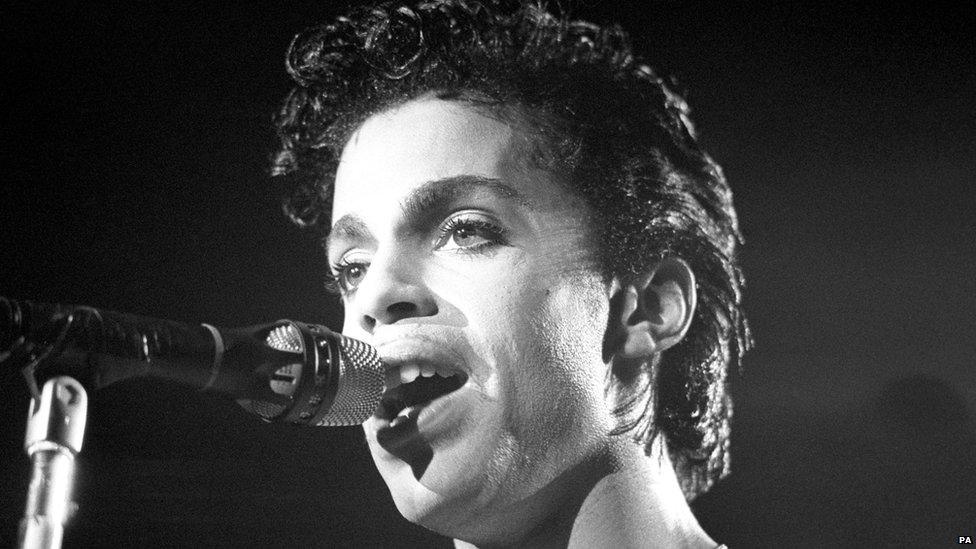
Prince later joked that the song "bought me a house"- but he reclaimed it as his own, performing it on every tour from the mid-90s onwards.
In his final years, he played relentlessly - and still holds a record at London's O2 arena for his 21-night residency in 2007.
During the run of shows (which more often than not were a prelude to intimate, late-night aftershows) he played more than 50 hours of music.
"We got so many hits we don't have time to play them all," he frequently told the audience - but he made a decent attempt. Journalists recorded that he played a total of 504 songs to audiences of half a million.
Prolific until his final days - he was working on yet another new album and played shows in the US just last week - the 57-year-old was said to have a cache of unreleased music in his sprawling Paisley Park mansion that would fill 100 records.